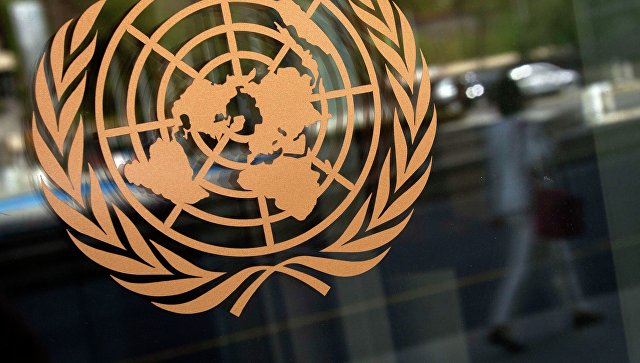Statement by representative of the Russian Federation Boris Meshchanov at the UNGA Second Committee joint general discussion on items 18 (Macroeconomic policy questions) and 19 (Follow-up to and implementation of the outcomes of the International Conferences on Financing for Development)
Dear Madam Chairperson,
We thank the UN Secretary General for the reports on the agenda items under consideration.
We call upon the states concerned to apply additional efforts for the earliest completion of the reform of the multilateral trading system with the central role of the WTO, acting on a non-discriminatory basis. The readiness of the participating countries to achieve progress before the start of the 12th WTO Ministerial Conference in negotiations on such important areas as agriculture, fishing subsidies, and the restoration of the Dispute Settlement Mechanism is required. We also urge you to promote the early accession of new members to the WTO. This will become a condition for the development of the trend of regionalization of world trade in accordance with the rules and regulations of the WTO. Russia with allies and partners supports strengthening network alliances through the development of integration processes within the CIS, EAEU, CSTO, SCO, APEC. A significant positive charge is borne by the initiative of Russian President Vladimir Putin to form a Greater Eurasian Partnership with the involvement of ASEAN.
On the whole, the regional aspect of the world's development is becoming more and more decisive. Much depends on whether we can translate the growing rivalry between regions into a mode of constructive cooperation. The achievement of this goal is seriously hampered by the action of unilateral coercive measures, which in fact, lead to fragmentation, politicization and distortion of world trade and the global financial system. We confirm the initiative of the President of Russia to create "green corridors" free from wars and sanctions, for the delivery of goods, investments and technologies in demand to combat the pandemic.
Regrettably, the long-standing reluctance of a number of major economies to respond to the growing role of developing countries and their associations in world economic processes does not allow to quickly and deeply reform the international financial architecture. Hence, an increase in the number of international structures other than Bretton Woods institutions, takes place, including, for example, the BRICS New Development Bank, the Asian Infrastructure Investment Bank, the Eurasian Development Bank. Importantly, the promotion of sustainable development by international financial institutions should be unconditional and depoliticized. An example here could be the operations of the UN funds and programs. We thus attach particular importance to coordinating the efforts of international organizations in providing development assistance. We advocate the expansion of technical assistance from the UNCTAD/WTO International Trade Center, as a unique institution of aid for trade in the UN system, in the process of increasing and diversifying exports in low-income countries, taking into account the extremely weak dynamics of post-pandemic restoration of their volumes.
All measures must be taken to avoid an overwhelming debt crisis, including a sovereign debt crisis. Together with partners, we are ready to further strengthen the potential of regional development banks with a view to expanding their concessional lending programs.
Russia supported the IMF's decision to issue Special Drawing Rights amounted at USD 650 billion, the G20-Paris Club initiative on the Common Framework for Debt Treatments beyond the DSSI , the G20-OECD International Agreement for global minimum tax. Despite their incompleteness and insufficiency from the point of view of many small economies and developing states in general, these are undoubtedly steps forward.
At the same time, it is important to emphasize that the released resources can and should, first of all, be directed not to new loans, but to fighting poverty and ensuring economic growth of developing countries in order to achieve the Sustainable Development Goals. Proceeding from this, Russia is practicing innovative debt cancellation schemes such as "debt for development. It was used to handle the bilateral debt issue of Cuba, the DPRK, Tanzania, Zambia and Mozambique to the Russian Federation.
Against the background of the economic depression, the active use of international cooperation mechanisms is in demand to recover, seize and return proceeds of crime to their countries of origin. Most of them are still exported from developing countries to developed countries or affiliated territories. Remained on the table are proposals to develop a new international instrument to supplement the UN Convention against Corruption and establish a clear and uniform procedure for identifying, seizing, confiscating and repatriating proceeds of crime based on the principles of justice and law.
We call on the member states to heed due attention to Russian initiatives that meet common interests.
I thank you.
